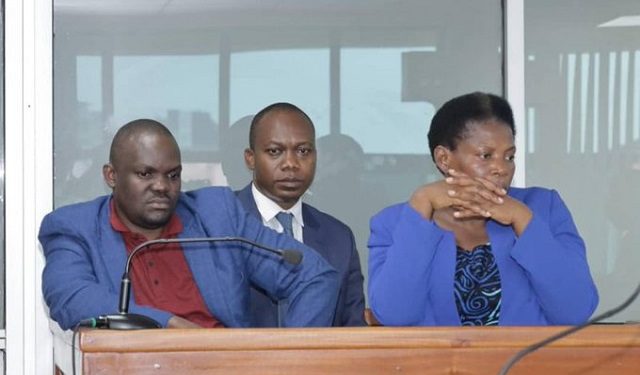In a significant move by the Anti-Corruption Court in Kampala, Chief Magistrate Joan Aciro has denied bail to Cissy Namujju Dionizia, the Woman MP for Lwengo District, and Yusuf Mutembuli, the MP for Bunyole East.
Both MPs have been committed to the High Court for trial on corruption charges.
Additionally, Paul Akamba, the MP for Busiki County, who was granted bail last Friday and violently rearrested outside court premises has been summoned by Court.
His whereabouts remain unknown.
The court rejected the bail applications of Namujju and Mutembuli, citing the insufficiency of their sureties. Chief Magistrate Aciro instructed that they be remanded and committed to the High Court for trial.
The MPs were advised to provide appropriate identification documents, including introduction letters from their Local Council Ones and employment IDs, to support any future bail applications.
Paul Akamba, who had initially been granted bail after meeting stringent conditions, including a cash payment of 13 million shillings and a non-cash bail of 100 million shillings for each surety, was violently rearrested by security operatives immediately after his release.
The court has now issued a summons for Akamba to appear before the High Court, further complicating his legal battles.
The allegations against Namujju, Mutembuli, and Akamba involve a purported solicitation of a bribe from Mariam Wangadya, Chairperson of the Uganda Human Rights Commission, on May 13, 2024.
The MPs are accused of demanding 20 percent of the anticipated budget of the UHRC for the financial year 2024/2025. They allegedly promised to use their influence on the Budget Committee of the Parliament of Uganda to increase the UHRC budget in exchange for this bribe.
These legal actions follow President Yoweri Kaguta Museveni’s recent State of the Nation Address, where he revealed substantial evidence of corruption among public officials. President Museveni emphasized a zero-tolerance approach to corruption and vowed to take stringent measures against those involved. The court’s decisions reflect a broader commitment to tackling corruption and ensuring accountability within the government.





